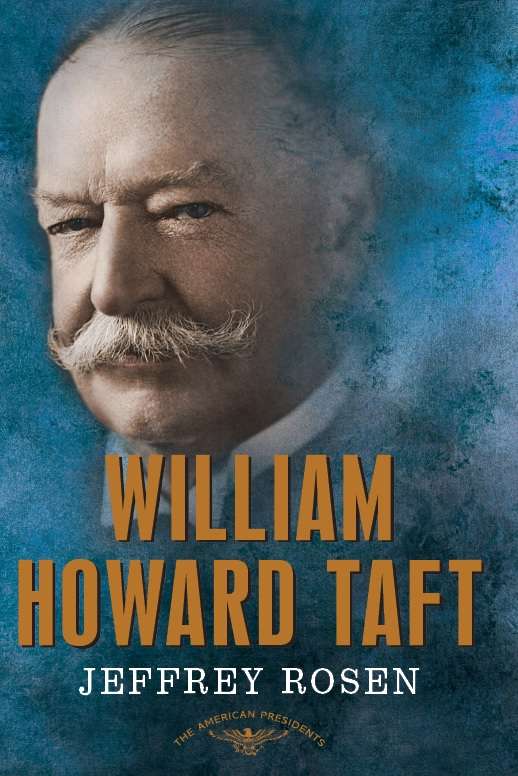The Volokh Conspiracy
Mostly law professors | Sometimes contrarian | Often libertarian | Always independent
What Would William Howard Taft Do About Attacks on Judges?

During a week when Washington has been unable to focus on anything other than the legacy of William Howard Taft, it's been a pleasure trying to channel our most judicial president on tariffs, Facebook, Mexico, and Robert Mueller. Let me end today by asking what Taft would have made of the recent attacks on judicial independence -- embodied by Jacksonian attacks on individual federal judges and by the 51 bills pending in 16 state legislatures that would diminish the independence of state judges.
Judicial independence was the cause to which Taft was most devoted, as President and Chief Justice. Taft fought the election of 1912 as a crusade against Theodore Roosevelt's demagogic attacks on judicial independence. In February, 1912, Roosevelt alarmed Taft by attacking individual judges by name and endorsing the right of the people to overturn state court decisions as well as recalling state court judges.
Taft responded that "the charter of democracy" Roosevelt proposed "advocated a change in our judicial system" that "would be dangerous to the body politic." The recall of judges and their decisions, he said, "would necessarily destroy the keystone of our liberties by taking away judicial independence, and by exposing to the chance of one popular vote, questions of the continuance of our constitutional guarantees of life, liberty and property and the pursuit of happiness." After delivering this fervent address, Taft retreated to his private railway car and expressed anguish to a journalist, "Roosevelt was my closest friend," he declared, with his head in his hands. And then he began to weep.
The tenderhearted president did not let his personal feelings interfere with his commitment to the rule of law. He vetoed the admission of New Mexico and Arizona into the Union as states because their constitutions provided for the recall of judicial decisions. And in his galvanizing book Liberty Under Law, Taft anticipated the dangers of making fundamental constitutional changes by a single popular referendum, like Brexit in our time:
A popular constituency may be misled by vigorous misrepresentation and denunciation. The shorter the time the people have to think, the better for the demagogue. One of the great difficulties in carrying on popular government is in getting into the heads of the intelligent voters what the real facts are and what reasonable deductions should be made from them. Any reasonable suspension of popular action until calm public consideration of reliable evidence can be secured is in the interest of a wise decision. That at least was what our forefathers thought in making our Federal Government and the result has vindicated them.
Taft further promoted this Madisonian view of the need for republican deliberation rather than direct democracy during his distinguished Chief Justiceship. In an interview for the book, Judge Douglas Ginsburg told me that "Taft was the most underappreciated constitutional figure since George Mason, who refused to sign the original Constitution because it didn't have a bill of rights." And in a recent conversation at the National Constitution Center, Judge Ginsburg ventured that Taft was the second most successful Chief Justice, surpassed only by John Marshall.
This judgment is based on Taft's three great achievements on behalf of judicial independence as Chief: He persuaded Congress to establish a conference of federal appellate judges in 1922, establishing the modern administrative apparatus of the federal judiciary. He persuaded Congress to pass the judiciary act of 1925, which gave the Court control over its own docket and allowed it to focus on constitutional cases. And he helped to build the Temple of Justice, the majestic Supreme Court building across from the Capitol, symbolically establishing the Court as the head of a separate and fully equal branch of the federal government.
These are anxious times, in America and around the world, as new populist forces threaten constitutional values such as limited government, individual liberty, and the rule of law. All citizens -- libertarians, conservatives and progressives -- eager for guidance about how to resurrect the framers' vision of a republic ruled by reason rather than passion can be inspired by the legacy of our most judicial president and presidential chief justice, William Howard Taft. Thanks for helping me channel him this week and if you check out the book, please let me know what you think!


Show Comments (50)